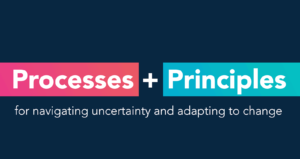Good Work: Tapping the Dark Matter

“Education is like the night sky; edreform offers a few points of light and the rest is dark matter,” said Nick Donohue. “The real opportunity is deeper public engagement–tapping the dark matter.”
Nick Donohue has been a high school head master, a college trustee, and a state chief. These days he leads The Nellie Mae Education Foundation. In addition to being a big advocate of innovations–particularly competency-based learning. Nick serves on the iNACOL board (with me) and supports the work of CompetencyWorks.
Nick thinks a lot about real public engagement. “We’ve been digging our own hole in the way we talk to the public.” He supports the work of Frameworks Institute which as studied Talking About Education Reform. He thinks Frameworks founder Susan Bales has created “a sheet of music on how to talk about changes.” Following are the ten framing observations of their Message Memo:
-
Education systems are invisible, which makes reforms unimaginable.
-
Unframed conversations about education blame parents, teachers and/or students.
-
The reforms that are easiest to think are the most conventional.
-
Crisis thinking, while common, leads to caution and conservatism, not innovation and transformation.
-
A lack of agency with respect to changing the education system leads to a defensive posture that favors a consumerist “me and my kid” approach.
-
Individualized and consumerist approaches to education make it difficult, but not impossible, for people to see education as an engine that drives national prosperity and as an investment we all make in the country’s future.
-
When the goal of education is explicitly described as the future preparation needed to maintain and support our country’s quality of life, people understand that a new set of skills and experiences are necessary.
-
When people can see the system of education and the need to coordinate its different parts for the good of the whole, they become more expansive in their thinking about how and where reform might take place.
-
When people can see reform as a practical act or as a set of methodical steps toward an ultimate goal, they gain agency and become more enthusiastic about education reforms.
-
Individual education reforms need to be contextualized by values and simplifying models if they are to avoid people’s tendency to default to strong, entrenched patterns of thinking that undermine meaningful reforms.
Nick is a divergent and creative thinker. He always makes me think differently and better about the challenges we face.








0 Comments
Leave a Comment
Your email address will not be published. All fields are required.